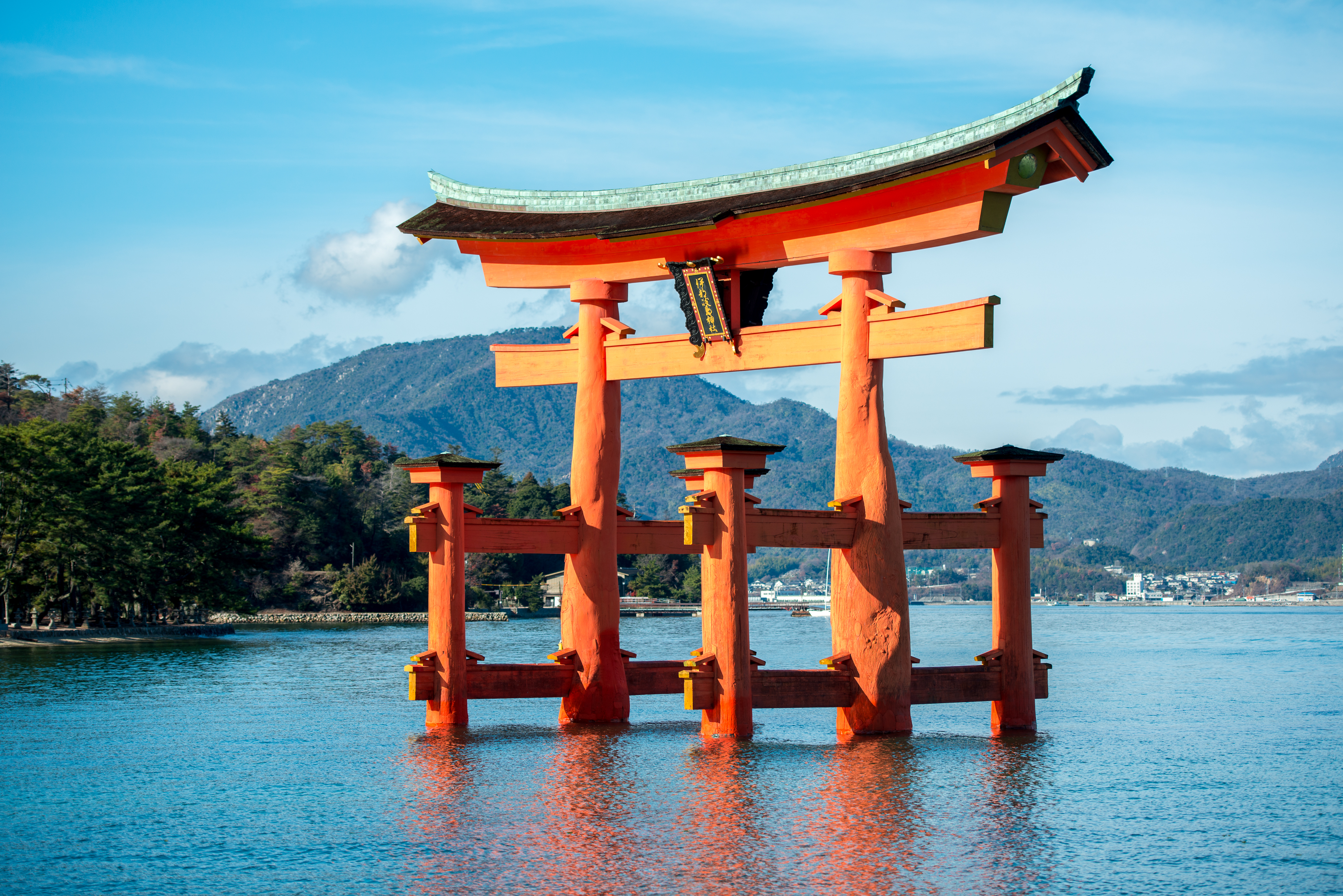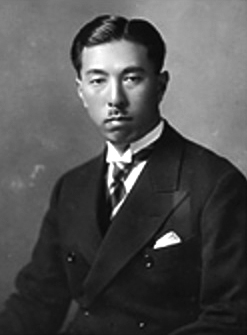|
Eugenics In Japan
Eugenics has influenced political, public health and social movements in Japan since the late 19th and early 20th century. Originally brought to Japan through the United States (like Charles Davenport and John Coulter), through Mendelian inheritance by way of German influences, and French Lamarckian eugenic written studies of the late 19th and early 20th centuries. Eugenics as a science was hotly debated at the beginning of the 20th, in ''Jinsei-Der Mensch'', the first eugenics journal in the Empire. As the Japanese sought to close ranks with the West, this practice was adopted wholesale, along with colonialism and its justifications. The concept of pureblood as a criterion for the uniqueness of the Yamato people began circulating around 1880 in Japan, while eugenics in the sense of instrumental and selective procreation, clustered around two positions concerning blood, the and the . Popularity of the pure-blood eugenics theory came from a homegrown racial purity or monoculture ... [...More Info...] [...Related Items...] OR: [Wikipedia] [Google] [Baidu] |
Empire Of Japan
The also known as the Japanese Empire or Imperial Japan, was a historical nation-state and great power that existed from the Meiji Restoration in 1868 until the enactment of the post-World War II 1947 constitution and subsequent formation of modern Japan. It encompassed the Japanese archipelago and several colonies, protectorates, mandates, and other territories. Under the slogans of and following the Boshin War and restoration of power to the Emperor from the Shogun, Japan underwent a period of industrialization and militarization, the Meiji Restoration, which is often regarded as the fastest modernisation of any country to date. All of these aspects contributed to Japan's emergence as a great power and the establishment of a colonial empire following the First Sino-Japanese War, the Boxer Rebellion, the Russo-Japanese War, and World War I. Economic and political turmoil in the 1920s, including the Great Depression, led to the rise of militarism, nationa ... [...More Info...] [...Related Items...] OR: [Wikipedia] [Google] [Baidu] |
Shinto
Shinto () is a religion from Japan. Classified as an East Asian religion by scholars of religion, its practitioners often regard it as Japan's indigenous religion and as a nature religion. Scholars sometimes call its practitioners ''Shintoists'', although adherents rarely use that term themselves. There is no central authority in control of Shinto, with much diversity of belief and practice evident among practitioners. A polytheistic and animistic religion, Shinto revolves around supernatural entities called the . The are believed to inhabit all things, including forces of nature and prominent landscape locations. The are worshiped at household shrines, family shrines, and ''jinja'' public shrines. The latter are staffed by priests, known as , who oversee offerings of food and drink to the specific enshrined at that location. This is done to cultivate harmony between humans and and to solicit the latter's blessing. Other common rituals include the dances, rites of pass ... [...More Info...] [...Related Items...] OR: [Wikipedia] [Google] [Baidu] |
Fumimaro Konoe
Prince was a Japanese politician and prime minister. During his tenure, he presided over the Japanese invasion of China in 1937 and the breakdown in relations with the United States, which ultimately culminated in Japan's entry into World War II. He also played a central role in transforming his country into a totalitarian state by passing the National Mobilization Law and founding the Imperial Rule Assistance Association. Despite Konoe's attempts to resolve tensions with the United States, the rigid timetable imposed on negotiations by the military and his own government's inflexibility regarding a diplomatic resolution set Japan on the path to war. Upon failing to reach a peace agreement, Konoe resigned as Prime Minister on 18 October 1941, prior to the outbreak of hostilities. However, he remained a close advisor to the Emperor until the end of World War II. Following the end of the war, he committed suicide on 16 December 1945. Early life Fumimaro Konoe was born in To ... [...More Info...] [...Related Items...] OR: [Wikipedia] [Google] [Baidu] |
John W
John is a common English name and surname: * John (given name) * John (surname) John may also refer to: New Testament Works * Gospel of John, a title often shortened to John * First Epistle of John, often shortened to 1 John * Second Epistle of John, often shortened to 2 John * Third Epistle of John, often shortened to 3 John People * John the Baptist (died c. AD 30), regarded as a prophet and the forerunner of Jesus Christ * John the Apostle (lived c. AD 30), one of the twelve apostles of Jesus * John the Evangelist, assigned author of the Fourth Gospel, once identified with the Apostle * John of Patmos, also known as John the Divine or John the Revelator, the author of the Book of Revelation, once identified with the Apostle * John the Presbyter, a figure either identified with or distinguished from the Apostle, the Evangelist and John of Patmos Other people with the given name Religious figures * John, father of Andrew the Apostle and Saint Peter * Pope Jo ... [...More Info...] [...Related Items...] OR: [Wikipedia] [Google] [Baidu] |
An Investigation Of Global Policy With The Yamato Race As Nucleus
was a secret Japanese government report created by the Ministry of Health and Welfare's Institute of Population Problems (now the National Institute of Population and Social Security Research), and completed on July 1, 1943. The document, comprising six volumes totaling 3,127 pages, deals with race theory in general, and the rationale behind policies adopted by wartime Japan towards other races, while also providing a vision of the Asia-Pacific under Japanese control. The document was written in an academic style, surveying Western philosophy on race from the writings of Plato and Aristotle to modern German social scientists, such as Karl Haushofer. A connection between racism, nationalism and imperialism was also claimed, with the conclusion, drawing by citing both British and German sources, that overseas expansionism was essential not only for military and economic security, but for preserving racial consciousness. Concerns pertaining to the cultural assimilation of second ... [...More Info...] [...Related Items...] OR: [Wikipedia] [Google] [Baidu] |
Social Darwinism
Social Darwinism refers to various theories and societal practices that purport to apply biological concepts of natural selection and survival of the fittest to sociology, economics and politics, and which were largely defined by scholars in Western Europe and North America in the 1870s. Social Darwinism holds that the strong see their wealth and power increase while the weak see their wealth and power decrease. Social Darwinist definitions of ''the strong'' and ''the weak'' vary, and also differ on the precise mechanisms that reward strength and punish weakness. Many such views stress competition between individuals in ''laissez-faire'' capitalism, while others, emphasizing struggle between national or racial groups, support eugenics, racism, imperialism and/or fascism.Leonard, Thomas C. (2009"Origins of the Myth of Social Darwinism: The Ambiguous Legacy of Richard Hofstadter's Social Darwinism in American Thought" ''Journal of Economic Behavior & Organization'' 71, pp. 37–5 ... [...More Info...] [...Related Items...] OR: [Wikipedia] [Google] [Baidu] |
Ikeda Shigenori in Osaka and Hyōgo Prefectures, Japan
{{disambiguation, geo ...
Ikeda may refer to: * Ikeda (surname), a Japanese surname * Ikeda (comics), a character in ''Usagi Yojimbo'' * Ikeda clan, a Japanese clan * Ikeda map, chaotic attractor * ''Ikeda'' (annelid) a genus of the family Ikedidae Places * Ikeda, Osaka in Osaka Prefecture, Japan * Ikeda, Fukui, Japan * Ikeda, Gifu, Japan * Ikeda, Hokkaidō, Japan * Ikeda, Kagawa, Shōzu District, Kagawa, Japan * Ikeda, Nagano, Japan * Ikeda, Tokushima, Miyoshi District, Tokushima, Japan * Lake Ikeda, Japan * Ikeda, Gunma, Japan * Ikeda Peace Institute in Cambridge, Massachusetts * Ikeda Route The , signed as Route 11, is one of the routes of the Hanshin Expressway system serving the Keihanshin area in Japan. It is a radial route that travels in a south to north direction from central Osaka to Itami Airport and Ikeda, Osaka, Ikeda, wi ... [...More Info...] [...Related Items...] OR: [Wikipedia] [Google] [Baidu] |
Imperialism
Imperialism is the state policy, practice, or advocacy of extending power and dominion, especially by direct territorial acquisition or by gaining political and economic control of other areas, often through employing hard power (economic and military power), but also soft power ( cultural and diplomatic power). While related to the concepts of colonialism and empire, imperialism is a distinct concept that can apply to other forms of expansion and many forms of government. Etymology and usage The word ''imperialism'' originated from the Latin word ''imperium'', which means supreme power, "sovereignty", or simply "rule". It first became common in the current sense in Great Britain during the 1870s, when it was used with a negative connotation. Hannah Arendt and Joseph Schumpeter defined imperialism as expansion for the sake of expansion. Previously, the term had been used to describe what was perceived as Napoleon III's attempts at obtaining political support through f ... [...More Info...] [...Related Items...] OR: [Wikipedia] [Google] [Baidu] |
Nationalism
Nationalism is an idea and movement that holds that the nation should be congruent with the State (polity), state. As a movement, nationalism tends to promote the interests of a particular nation (as in a in-group and out-group, group of people),Anthony D. Smith, Smith, Anthony. ''Nationalism: Theory, Ideology, History''. Polity (publisher), Polity, 2010. pp. 9, 25–30; especially with the aim of gaining and maintaining the nation's sovereignty (self-governance) over its homeland to create a nation-state. Nationalism holds that each nation should govern itself, free from outside interference (self-determination), that a nation is a natural and ideal basis for a polity, and that the nation is the only rightful source of political power. It further aims to build and maintain a single national identity, based on a combination of shared social characteristics such as culture, ethnicity, geographic location, language, politics (or the government), religion, traditions and belief ... [...More Info...] [...Related Items...] OR: [Wikipedia] [Google] [Baidu] |
University Of Michigan
, mottoeng = "Arts, Knowledge, Truth" , former_names = Catholepistemiad, or University of Michigania (1817–1821) , budget = $10.3 billion (2021) , endowment = $17 billion (2021)As of October 25, 2021. , president = Santa Ono , provost = Laurie McCauley , established = , type = Public research university , academic_affiliations = , students = 48,090 (2021) , undergrad = 31,329 (2021) , postgrad = 16,578 (2021) , administrative_staff = 18,986 (2014) , faculty = 6,771 (2014) , city = Ann Arbor , state = Michigan , country = United States , coor = , campus = Midsize City, Total: , including arboretum , colors = Maize & Blue , nickname = Wolverines , sporti ... [...More Info...] [...Related Items...] OR: [Wikipedia] [Google] [Baidu] |






